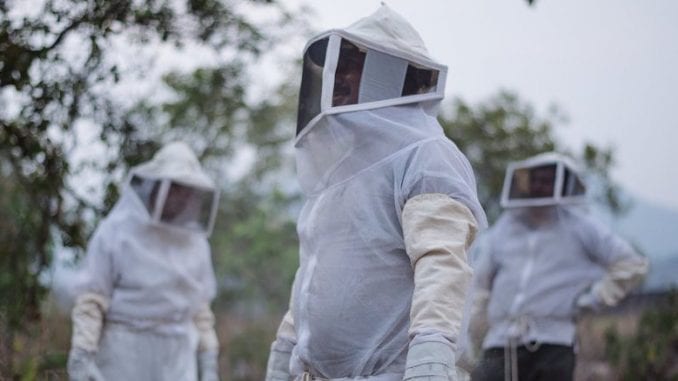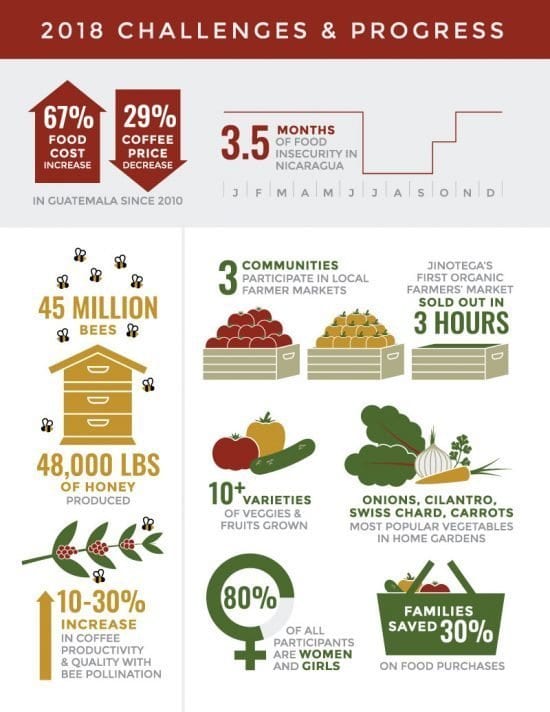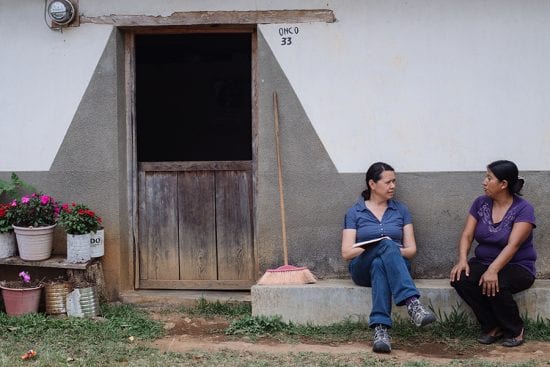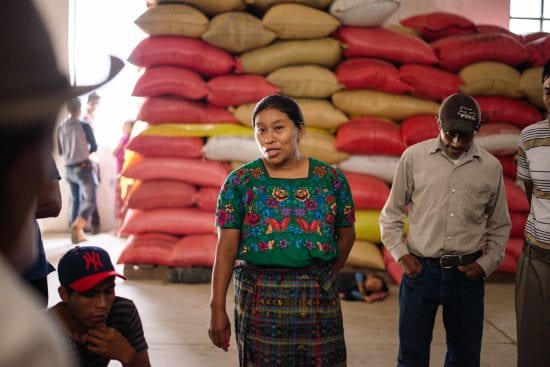
In the midst of the global coffee crisis, the nonprofit’s new report showcases the work they are doing to help coffee farmers in Latin America feed their families.
BY KATRINA YENTCH
BARISTA MAGAZINE ONLINE
Photos courtesy of Food 4 Farmers
While many of us are aware and deeply concerned about the shocking gap between green coffee prices and production costs, we can now add another pressing factor to consider during this time: the cost for farmers to put food on the table.
According to nonprofit organization Food 4 Farmers, it costs $5,616 a year to feed a family of five in Guatemala, yet some farmers’ average coffee net income is $900. Thus, thousands of families in coffee-growing communities are prone to experiencing seasonal periods of starvation referred to as la vaca flaca, or “the skinny cow” in English. Food 4 Farmers’ work is aimed at providing practical solutions to overcome this, and although they’ve been dedicated to this mission since 2010, their work is ever more relevant during this crucial time in the coffee industry. They’ve recently released their 2018 annual report, which offers easy-to-read insight on what the group has been doing to combat the global coffee crisis and is now available for the public to read.

“It was a challenging year for coffee-farming families and it continues today. That’s why Food 4 Farmers’ work to help families reduce their dependence on coffee and diversify income is so important,” says Magda Van Dusen, board chair at Food 4 Farmers. “We’re proud that even in spite of low coffee prices, the families we work with have been able to implement long-term strategies to address the root causes of hunger and poverty.”
Food 4 Farmers was inspired by a trip that cofounder Rick Peyser took to Guatemala, Nicaragua, and Mexico in 2007 with the International Center for Tropical Agriculture to interview small-scale farmers. Upon learning that 67% of them had experienced seasonal periods of hunger, the group was founded in 2010 as a way to put food on the table for these farmers—not merely by donations, but by implementing several strategies and initiatives for these families to build long-term, sustainable solutions to overcoming la vaca flaca outside of and interwoven with coffee growing.
Today, Food 4 Farmers has several projects that they work on with over 3,000 families in five cooperatives throughout Latin America that include local farmers markets and beekeeping.

Unlike some reports filled with exhausting data, percentages, and graphs, Food 4 Farmers’ report is comprehensive and easy to read. We’re not looking at data, but rather overall highlights of the work that the group is doing. The report is organized firstly with the group’s mission and its beginnings; then, it dives into two of their most important initiatives (beekeeping and work with females in farming communities), all while profiling their partner cooperatives, crediting donors and supporters, and including a financial report of all assets.
One of the major components the report includes is the impact that Food 4 Farmers’ projects have had on the cooperatives they work with (such as SOPPEXCCA in Nicaragua, CESMACH in Mexico, and Comepcafe in Colombia). For example, it features the farmers at CESMACH in Chiapas, Mexico, and Maya Ixil in Guatemala, who have all been incorporating beekeeping into their practice to supplement income and pollinate crops. The report shows that bee pollination leads to an increase of 10 to 30% in coffee productivity and quality.
Additionally, the report highlights a group of 28 women at partner co-op SOPPEXCCA who launched a weekly organic farmers market in Jinotega. Not only has the market sold out in a few hours, but many of the women also relied on their home gardens for food when there were shortages caused by political turmoil in the country.

In sharing this information, Food 4 Farmers offers a transparent look at the impact they’re making in the midst of the global coffee crisis. Their work is made possible by donors of every size, from small cafés with a coin drop to large corporate partners. To support the organization’s ongoing efforts, readers can donate here or contact them via email for information on partnerships.

